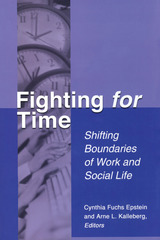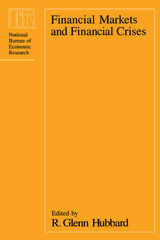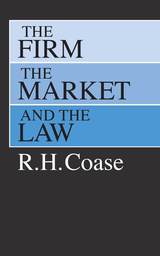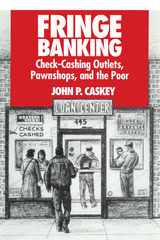103 books about Microeconomics and 5
start with F
103 books about Microeconomics and 5
103 books about Microeconomics
5 start with F start with F
5 start with F start with F

Fighting For Time
Shifting Boundaries of Work and Social Life
Cynthia Fuchs Epstein
Russell Sage Foundation, 2004
Though there are still just twenty-four hours in a day, society's idea of who should be doing what and when has shifted. Time, the ultimate scarce resource, has become an increasingly contested battle zone in American life, with work, family, and personal obligations pulling individuals in conflicting directions. In Fighting for Time, editors Cynthia Fuchs Epstein and Arne Kalleberg bring together a team of distinguished sociologists and management analysts to examine the social construction of time and its importance in American culture. Fighting for Time opens with an exploration of changes in time spent at work—both when people are on the job and the number of hours they spend there—and the consequences of those changes for individuals and families. Contributors Jerry Jacobs and Kathleen Gerson find that the relative constancy of the average workweek in America over the last thirty years hides the fact that blue-collar workers are putting in fewer hours while more educated white-collar workers are putting in more. Rudy Fenwick and Mark Tausig look at the effect of nonstandard schedules on workers' health and family life. They find that working unconventional hours can increase family stress, but that control over one's work schedule improves family, social, and health outcomes for workers. The book then turns to an examination of how time influences the organization and control of work. The British insurance company studied by David Collinson and Margaret Collinson is an example of a culture where employees are judged on the number of hours they work rather than on their productivity. There, managers are under intense pressure not to take legally guaranteed parental leave, and clocks are banned from the office walls so that employees will work without regard to the time. In the book's final section, the contributors examine how time can have different meanings for men and women. Cynthia Fuchs Epstein points out that professional women and stay-at-home fathers face social disapproval for spending too much time on activities that do not conform to socially prescribed gender roles—men are mocked by coworkers for taking paternity leave, while working mothers are chastised for leaving their children to the care of others. Fighting for Time challenges assumptions about the relationship between time and work, revealing that time is a fluid concept that derives its importance from cultural attitudes, social psychological processes, and the exercise of power. Its insight will be of interest to sociologists, economists, social psychologists, business leaders, and anyone interested in the work-life balance.
[more]

Fights, Games, and Debates
Anatol Rapoport
University of Michigan Press, 1974
A scientifically grounded method by which we can understand human conflict in all its forms
[more]

Financial Markets and Financial Crises
Edited by R. Glenn Hubbard
University of Chicago Press, 1991
Warnings of the threat of an impending financial crisis are not new, but do we really know what constitutes an actual episode of crisis and how, once begun, it can be prevented from escalating into a full-blown economic collapse?
Using both historical and contemporary episodes of breakdowns in financial trade, contributors to this volume draw insights from theory and empirical data, from the experience of closed and open economies worldwide, and from detailed case studies. They explore the susceptibility of American corporations to economic downturns; the origins of banking panics; and the behavior of financial markets during periods of crisis. Sever papers specifically address the current thrift crisis—including a detailed analysis of the over 500 FSLIC-insured thrifts in the southeast—and seriously challenge the value of recent measures aimed at preventing future collapse in that industry. Government economists and policy makers, scholars of industry and banking, and many in the business community will find these timely papers an invaluable reference.
Using both historical and contemporary episodes of breakdowns in financial trade, contributors to this volume draw insights from theory and empirical data, from the experience of closed and open economies worldwide, and from detailed case studies. They explore the susceptibility of American corporations to economic downturns; the origins of banking panics; and the behavior of financial markets during periods of crisis. Sever papers specifically address the current thrift crisis—including a detailed analysis of the over 500 FSLIC-insured thrifts in the southeast—and seriously challenge the value of recent measures aimed at preventing future collapse in that industry. Government economists and policy makers, scholars of industry and banking, and many in the business community will find these timely papers an invaluable reference.
[more]

The Firm, the Market, and the Law
R. H. Coase
University of Chicago Press, 1987
Few other economists have been read and cited as often as R.H. Coase has been, even though, as he admits, "most economists have a different way of looking at economic problems and do not share my conception of the nature of our subject." Coase's particular interest has been that part of economic theory that deals with firms, industries, and markets—what is known as price theory or microeconomics. He has always urged his fellow economists to examine the foundations on which their theory exists, and this volume collects some of his classic articles probing those very foundations. "The Nature of the Firm" (1937) introduced the then-revolutionary concept of transaction costs into economic theory. "The Problem of Social Cost" (1960) further developed this concept, emphasizing the effect of the law on the working of the economic system. The remaining papers and new introductory essay clarify and extend Coarse's arguments and address his critics.
"These essays bear rereading. Coase's careful attention to actual institutions not only offers deep insight into economics but also provides the best argument for Coase's methodological position. The clarity of the exposition and the elegance of the style also make them a pleasure to read and a model worthy of emulation."—Lewis A. Kornhauser, Journal of Economic Literature
Ronald H. Coase was awarded the Nobel Prize in Economic Science in 1991.
"These essays bear rereading. Coase's careful attention to actual institutions not only offers deep insight into economics but also provides the best argument for Coase's methodological position. The clarity of the exposition and the elegance of the style also make them a pleasure to read and a model worthy of emulation."—Lewis A. Kornhauser, Journal of Economic Literature
Ronald H. Coase was awarded the Nobel Prize in Economic Science in 1991.
[more]

Fringe Banking
Check-Cashing Outlets, Pawnshops, and the Poor
John P. Caskey
Russell Sage Foundation, 1994
"Cogently argued, fills an important gap in the literature, and is accessible to undergraduates." —Choice "Dismantles the mythology surrounding pawnshops and check-cashing outlets, and demonstrates that they are no longer on the fringe of our financial system but integral to it."—San Francisco Bay Guardian In today's world of electronic cash transfers, automated teller machines, and credit cards, the image of the musty, junk-laden pawnshop seems a relic of the past. But it is not. The 1980s witnessed a tremendous boom in pawnbroking. There are now more pawnshops thanever before in U.S. history, and they are found not only in large cities but in towns and suburbs throughout the nation. As John Caskey demonstrates in Fringe Banking, the increased public patronage of both pawnshops and commercial check-cashing outlets signals the growing number of American households now living on a cash-only basis, with no connection to any mainstream credit facilities or banking services. Fringe Banking is the first comprehensive study of pawnshops and check-cashing outlets, profiling their operations, customers, and recent growth from family-owned shops to such successful outlet chains as Cash American and ACE America's Cash Express. It explains why, despite interest rates and fees substantially higher than those of banks, their use has so dramatically increased. According to Caskey, declining family earnings, changing family structures, a growing immigrant population, and lack of household budgeting skills has greatly reduced the demand for bank deposit services among millions of Americans. In addition, banks responded to 1980s regulatory changes by increasing fees on deposit accounts with small balances and closing branches in many poor urban areas. These factors combined to leave many low- and moderate-income families without access to checking privileges, credit services, and bank loans. Pawnshops and check-cashing outlets provide such families with essential financial services thay cannot obtain elsewhere. Caskey notes that fringe banks, particularly check-cashing outlets, are also utilized by families who could participate in the formal banking system, but are willing to pay more for convenience and quick access to cash. Caskey argues that, contrary to their historical reputation as predators milking the poor and desperate, pawnshops and check-cashing outlets play a key financial role for disadvantaged groups. Citing the inconsistent and often unenforced state laws currently governing the industry, Fringe Banking challenges policy makers to design regulations that will allow fringe banks to remain profitable without exploiting the customers who depend on them.
[more]
READERS
Browse our collection.
PUBLISHERS
See BiblioVault's publisher services.
STUDENT SERVICES
Files for college accessibility offices.
UChicago Accessibility Resources
home | accessibility | search | about | contact us
BiblioVault ® 2001 - 2024
The University of Chicago Press









